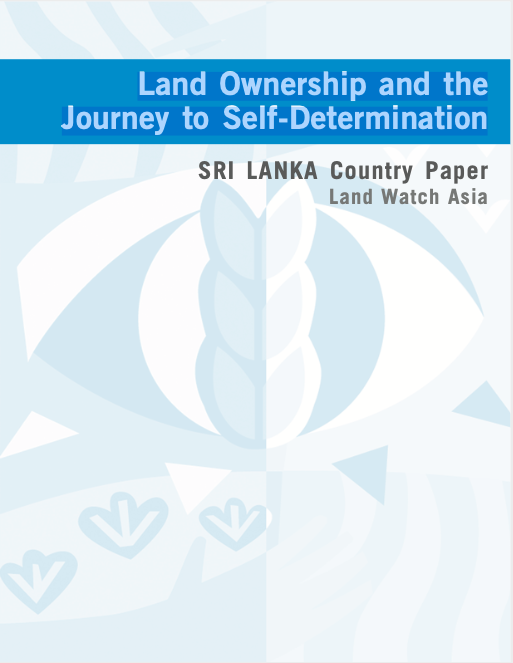Land Ownership and the Journey to Self-Determination
This paper is an abridged version of an earlier scoping study entitled Sri Lanka Country Report: Land Watch Asia Study prepared in 2010 by the Sarvodaya Shramadana Movement through the support of the International Land Coalition (ILC).







